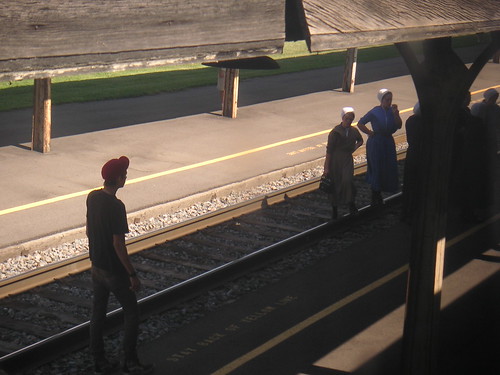Young women’s bible study looking for non-traditional resources
This request arrived in the YAR inbox last week. I hope YAR readers can help.
I’m a member of a young women’s (mid to late 20s) bible study group. We are sick of the “regular” bible studies and I’m writing to see if you can recommend anything a little more non-traditional, thought provoking and discussion encouraging….we are looking for something that would involve questions being asked in order to encourage/help focus discussion.
What we are looking for is something with a short text section that could be read by the leader for the week, based on something in the bible, or even just an issue in Christian culture, current events – we’re pretty open. We then would like to have questions which would help facilitate discussion on the topic presented in the text. Most of us don’t have lots of time to do readings/prepare ahead of time, so we appreciate sessions that allow us to focus on one topic the night we meet and then move onto a new/related topic the next week.
Post your suggestion of books or on-line resources to this comment thread or email them to admin@young.anabaptistradicals.org

